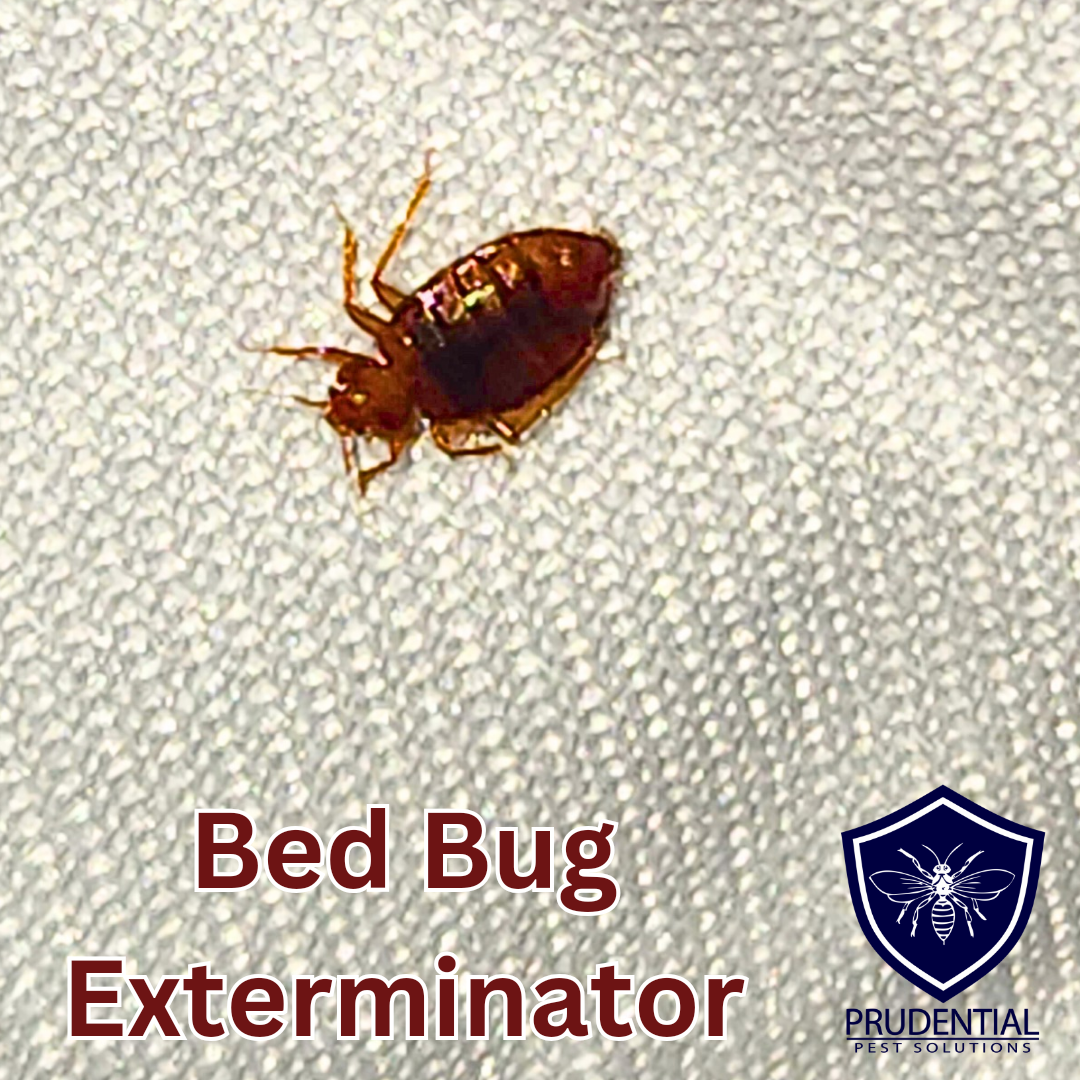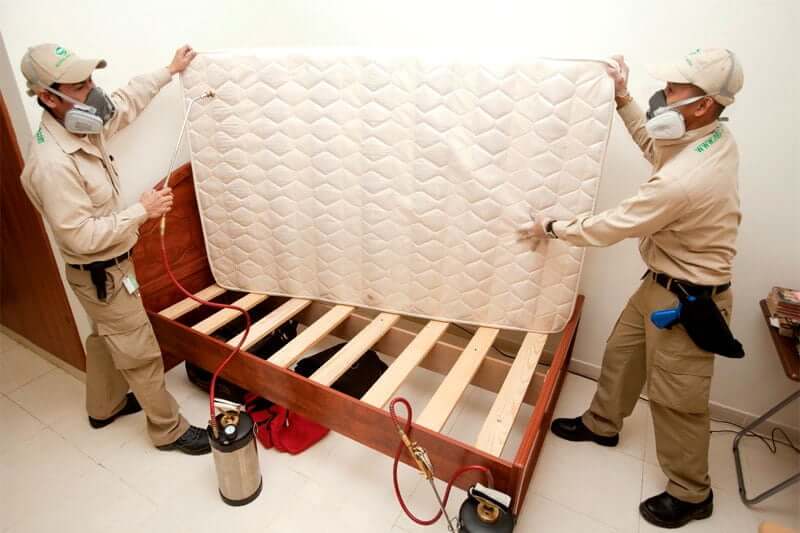Trusted Exterminator Arlington VA: Fast and Reliable Pest Control Services
Trusted Exterminator Arlington VA: Fast and Reliable Pest Control Services
Blog Article
Obtain Educated About the Sorts Of Pest Control Methods and Their Advantages for Property Owners
Recognizing the different pest control approaches offered to homeowners is necessary for effective insect monitoring. From chemical and organic techniques to social and mechanical practices, each technique provides one-of-a-kind advantages that can significantly influence both wellness and ecological safety and security. Homeowners that are well-informed can make calculated choices that not only address insect problems however also enhance the general quality of their living environment. As we discover these approaches better, it comes to be clear that the decision-making process includes even more than just prompt results; it touches on lasting sustainability and wellness. What factors should affect these critical decisions?
Chemical Parasite Control Techniques
Chemical parasite control approaches are an important element of incorporated pest administration strategies for house owners looking for effective solutions to pest invasions. These approaches involve the application of chemical compounds made to eliminate or prevent parasites that threaten personal home, wellness, and comfort. Common chemicals utilized consist of pesticides, rodenticides, herbicides, and fungicides, each customized to target specific pests.
The main benefit of chemical bug control is its quick performance; many formulations provide immediate results, reducing pest populations substantially quickly. In addition, advances in chemical formulations have actually led to items that are extra eco pleasant and have reduced poisoning degrees for non-target microorganisms when applied properly.

Biological Bug Control Strategies
Natural bug control methods have obtained prominence as house owners look for safer and much more lasting choices to standard chemical strategies. Biological insect control methods make use of natural predators, parasites, or virus to take care of pest populations successfully. This approach is not only eco-friendly yet additionally minimizes the risk of damage to non-target types, consisting of useful bugs and wild animals.
Among one of the most usual organic control methods involves introducing natural predators into the setting. Ladybugs can be used to control aphid populations, while nematodes target soil-dwelling insects like grubs. Additionally, parasitoids-- microorganisms that live on or within a host-- can be employed to control particular parasite species by laying eggs inside them, eventually bring about their death.
Another strategy is using biopesticides, which are stemmed from natural materials such as microorganisms, plants, or minerals (bed bug exterminator). These products can efficiently target pests while posing minimal threat to family pets and people. In general, biological parasite control strategies supply house owners with an effective means of parasite administration that aligns with eco-friendly principles, promoting a healthier living setting while minimizing reliance on artificial chemicals
Mechanical Insect Control Strategies
Mechanical parasite control strategies incorporate a range of approaches that literally prevent or remove insects without the usage of chemicals. These methods are particularly beneficial for house owners seeking eco-friendly options while making sure the safety of their space.
One common approach is using obstacles, such as nets, traps, and displays, which protect against insects from getting in homes or particular locations. As an example, setting up window screens can properly keep bugs out, while making use of physical barriers around gardens can prevent bigger insects like rabbits or deer. In addition, mechanical catches designed for rodents can catch and get rid of these insects basics without the requirement for hazardous materials.
Another effective technique includes making use of mops and vacuums to remove insects directly from surfaces. Routine cleansing and upkeep can significantly decrease insect populations by removing food sources and concealing areas. Using tools like ultrasonic parasite repellents can hinder numerous bugs through sound waves that are unpleasant to them however inaudible to humans.
Social Parasite Control Practices
Social bug control methods concentrate on changing the setting and administration methods to create problems that are much less for pest invasions. These practices are basic in keeping a balanced community and decreasing the reliance on chemical treatments. By changing agricultural techniques, house owners can successfully deter parasites while promoting plant wellness.
One typical method consists of plant rotation, which interferes with the life cycles of pests by transforming the types of plants grown in a certain area (bed bug exterminator). This not just lessens pest populations yet also boosts soil wellness. Furthermore, intercropping-- growing diverse crops in distance-- can confuse bugs and decrease their capacity to locate their recommended host plants
Water management is an additional vital facet of cultural practices. Appropriate irrigation strategies can stop standing water, which functions as a breeding ground for mosquitoes and various other insects. Preserving sanitation in and around the home, such as frequently removing particles and food waste, can substantially minimize insect destination.
Including these social methods right into an extensive parasite management strategy permits homeowners to create a setting that normally prevents pests, thus improving the efficiency of various other control methods while promoting sustainable gardening and landscaping.

Integrated Insect Administration Approaches
Integrated Pest Management (IPM) stands for an all natural technique that integrates different strategies to efficiently take care of bug populations while lessening environmental impact. This method incorporates biological, cultural, physical, and chemical methods to achieve lasting parasite control. By examining pest populaces and their natural adversaries, IPM stresses monitoring and identifying bugs prior to implementing control actions.
Among the core principles of IPM is the usage of thresholds, which develop the level of pest task that warrants treatment. This guarantees that therapies are applied just when required, lowering the dependence on chemical pesticides. Biological control techniques, such as introducing natural killers or parasites, job in conjunction with social methods like crop rotation and habitat adjustment to interfere with pest life cycles.
Additionally, IPM encourages the use of least-toxic chemical options when intervention is necessary, focusing on items that present minimal danger to non-target organisms and the setting. For homeowners, adopting IPM comes close to not only boosts the efficiency of pest administration yet also promotes a healthier living environment, promoting biodiversity and lowering chemical direct exposure. Inevitably, IPM empowers house owners to make enlightened decisions that stabilize parasite control with environmental obligation.
Final Thought
In verdict, recognizing the various insect control approaches encourages home owners to make enlightened choices regarding pest management. Each method-- chemical, biological, mechanical, cultural, and incorporated insect administration-- provides distinct benefits that deal with various requirements and preferences. By picking proper approaches, house owners can effectively take care of pest populaces while minimizing health and wellness dangers and environmental effects. This enlightened strategy contributes to a much healthier living setting, advertising general well-being for families and official source pets alike.
Comprehending the numerous insect control techniques available to homeowners is crucial for efficient parasite administration.Chemical parasite control methods are a critical part of integrated bug monitoring methods for property owners looking for effective options to pest infestations. On the whole, biological insect control strategies provide property owners with a reliable means of parasite management that aligns with eco-friendly principles, promoting a much healthier living setting while reducing reliance on artificial chemicals.
Social pest control methods concentrate on changing the atmosphere and administration methods to develop problems that are much less helpful to pest problems.In conclusion, understanding the different pest control approaches encourages homeowners to make informed decisions relating Bonuses to pest monitoring.
Report this page